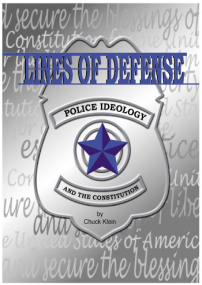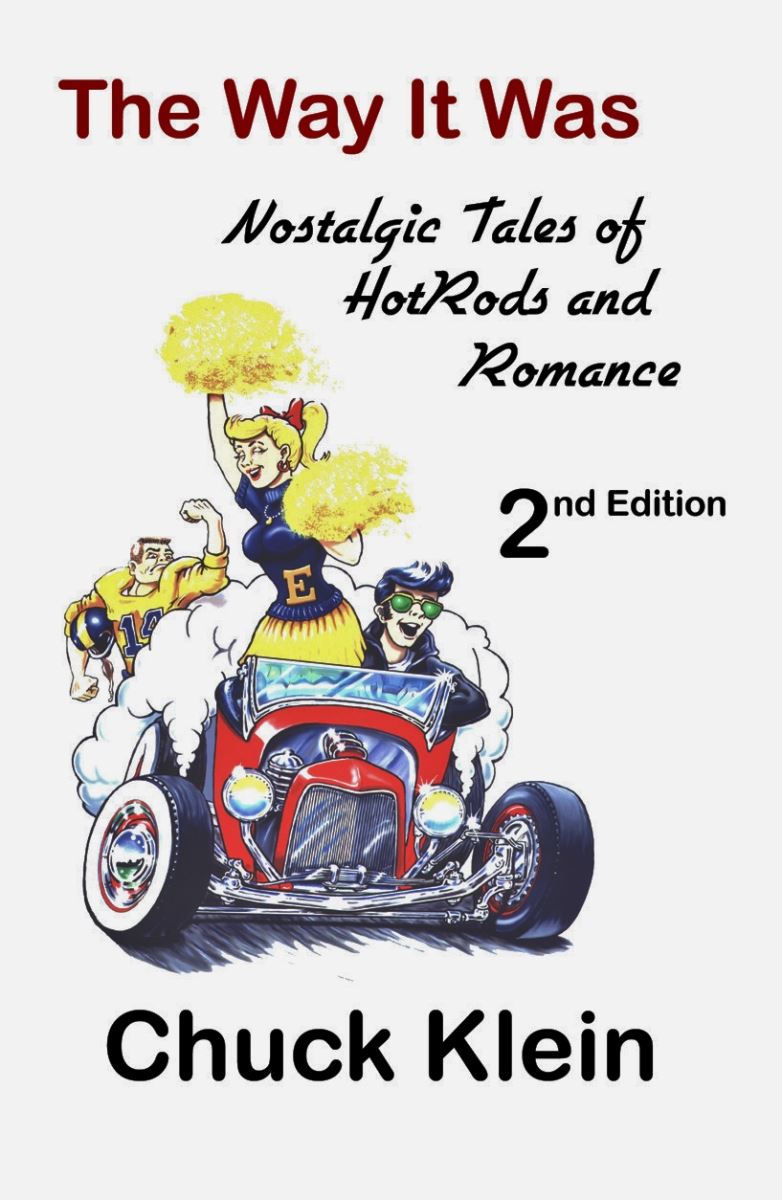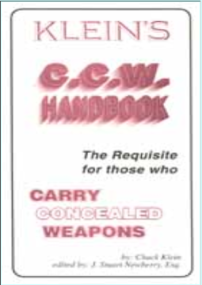

.jpg)





.jpg)
AMENDMENT IX.
(Unlisted rights)
© 1999 Chuck Klein
Published in Guns & Ammo Magazine 12-99
"The enumeration in the Constitution of certain rights shall not be construed to deny or disparage others retained by the people." (Amendment #9, U.S. Constitution)
 The 9th Amendment, is seldom quoted or referenced because at first glance it seems confusing and obscure. However, upon careful dissection it is clear it was written as a reminder that the government is not permitted to negate or even reduce in meaning any of the "people's" rights. Beginning with the Preamble to our Declaration of Independence and continuing through each article and amendment of the Constitution, the underlying uniform theme confirms our forefathers' design to protect individual rights.
The 9th Amendment, is seldom quoted or referenced because at first glance it seems confusing and obscure. However, upon careful dissection it is clear it was written as a reminder that the government is not permitted to negate or even reduce in meaning any of the "people's" rights. Beginning with the Preamble to our Declaration of Independence and continuing through each article and amendment of the Constitution, the underlying uniform theme confirms our forefathers' design to protect individual rights.
In the words of Justice Jackson for the U.S. Supreme Court in West Virginia State Board of Education v. Barnette, [319 U.S. 624 (1943)], "The very purpose of a Bill of Rights was to withdraw certain subjects from the vicissitudes of political controversy, to place them beyond the reach of majorities and officials...fundamental rights may not be submitted to vote; they depend on the outcome of no elections."
Using common definitions from Webster's Ninth New Collegiate Dictionary, the simplicity of this Amendment is explained:
* ENUMERATION: List of items, such as those listed in the Constitution, i.e., right to keep and bear arms, right to peaceable assembly, etc.
* CERTAIN: Fixed, settled or determined, previously established things, such as the right to free speech and freedom of the press.
* RIGHTS: That which a person has a just claim to; a privilege or immunity. Something that belongs to a person by law, nature or tradition. Rights are either contractual inasmuch as they are established by statute, constitution, court order etc., or by nature, such as the inalienable right to life.
* SHALL: Mandatory, must be done. Contrary to this explicit demand of the 9th Amendment, the courts, in many instances, have ignored their obligation..jpg)
* CONSTRUED: Interpret: infer, deduce, to construct. To understand or explain the sense or intention of - in a particular way - or with respect to a given set of circumstance. The very act of incorporating the 9th Amendment into the Bill of Rights is construed to guarantee that these listed rights were not the only rights reserved for the citizens.
* DENY: To refuse to accept the existence, truth, or validity thereof. Lawmakers and some courts, in violation of the mandatory "shall" of the 9th Amendment, have consistently refused not only to accept the existence, truth and validity of our inalienable rights to life, liberty and the pursuit of happiness, but also to secure (guarantee) these rights. To acknowledge a right, but deny a means to enforce or protect the right is not a right at all.
* DISPARAGE: To lower in rank or reputation, degrade. To depreciate by indirect means. If our power to defend our UNALIENABLE RIGHTS is degraded, depreciated or reduced, then those rights, in violation of this amendment, have been DISPARAGED. There is no greater degradation of a right than to restrict the enjoyment of the right for lack of a way to defend it.
* RETAINED: To keep in possession, to hold secure or intact, keep. Rights, listed or unlisted in the Constitution, belong to us, the citizens of the United States, and are not subject to political correctness, disparagement, denial or removal.
* PEOPLE: Human beings making up a group or assembly or linked by a common interest. The citizens of the United States of America.
* OTHERS: Being the one or ones distinct from that or those first mentioned or implied. Refers to the rights that are not listed in the Constitution as opposed to the certain rights that are listed there. These other rights are the inalienable rights that include, but are not limited to, those self-evident Truths: "Life, Liberty and the Pursuit of Happiness."
Thus, the Ninth Amendment could be stated in these words:
The number of rights listed in the constitution shall not be the only rights kept by the people and that these other rights shall not be degraded, or depreciated or negated by refusal to accept the truth or existence thereof.
Or, in still other words:
The rights listed in the constitution are not our only rights, and what other rights we have cannot be taken away or even reduced in power or stature.
Modern American Law, Volume 16, Constitutional Law, (Blackstone Institute, 1921) also defines this amendment in simple terms: "...a declaration intended to preclude [rule out in advance] the view which might possibly be put forward that the specific enumeration of certain rights was exhaustive [complete, thorough] and therefore no others could be claimed" [notations added]. Here, the authors of this noted text point out that the framers of the Constitution were so fearful of future usurpation of government power, they wrote this hands-off-all-of-our-rights into the Bill of Rights.
Of the few court cases that have examined the 9th amendment, the United States v. Cook [(1970, WD Pa) 311 F Supp 618] did define the objective of this least cited amendment: "The purpose of the Ninth Amendment is to guarantee to individuals those rights inherent to citizenship in democracy which are not specifically enumerated in the Bill of Rights."
 A quote from one of our most respected Supreme Court Justices, Louis Brandeis, brought to light not all our rights are listed rights and that at least one of these unlisted rights is most valued: "The makers of our Constitution undertook to secure conditions favorable to the pursuit of happiness. They recognized the significance of man's spiritual nature, of his feelings and of his intellect. They knew that only a part of the pain, pleasure and satisfaction of life are to be found in material things. These legal pioneers sought to protect Americans in their belief, their thoughts, their emotions and their sensations. They conferred, as against the Government, the right to be let alone - the most comprehensive of rights and the right most valued by civilized man." [Olmstead v. United States, 227 U.S. 478].
A quote from one of our most respected Supreme Court Justices, Louis Brandeis, brought to light not all our rights are listed rights and that at least one of these unlisted rights is most valued: "The makers of our Constitution undertook to secure conditions favorable to the pursuit of happiness. They recognized the significance of man's spiritual nature, of his feelings and of his intellect. They knew that only a part of the pain, pleasure and satisfaction of life are to be found in material things. These legal pioneers sought to protect Americans in their belief, their thoughts, their emotions and their sensations. They conferred, as against the Government, the right to be let alone - the most comprehensive of rights and the right most valued by civilized man." [Olmstead v. United States, 227 U.S. 478].
We didn't create a government to define or tell us what happiness, liberty or life is. That's the kind of authority we had when the King of England, with his edicts, orders and laws, was telling our forebears what behavior was required to being a proper subject. When we had had enough of being told what made us happy, we created a government to protect our right to determine for ourselves, individually, what made us happy, secure and what life style we wanted. Two-hundred-plus years of evolution has brought us back to where we started. Regardless of many well-intentioned legislators, judges and bureaucrats, we have returned to a government that, in far too many instances, is forcing its definition of Life, Liberty and the Pursuit of Happiness on us.
.jpg) It is obvious that the framers of our body of laws intendedfor the government to keep its hands off our inalienable rights enumerated rights (unlisted) as well as off our enumerated rights (listed). Not only does our sacred Constitution put our rights nto print, but it also creates the rule of law forbidding the government from denying or disparaging (taking away or lowering in value) any of our listed or unlisted rights. The only way our rights can be removed or devalued is by enactment of a new constitutional amendment that specifically addresses the particular issue.
It is obvious that the framers of our body of laws intendedfor the government to keep its hands off our inalienable rights enumerated rights (unlisted) as well as off our enumerated rights (listed). Not only does our sacred Constitution put our rights nto print, but it also creates the rule of law forbidding the government from denying or disparaging (taking away or lowering in value) any of our listed or unlisted rights. The only way our rights can be removed or devalued is by enactment of a new constitutional amendment that specifically addresses the particular issue.
If one has the right to life but is denied the means (use of arms) to secure this right, then the right to life is disparaged (lessened) and is not a right to life at all.
|
There is no constitutional requirement placed on any governmental body to protect the individual - to protect his rights. Part of being an American is accepting the responsibility to secure individual rights such as the right to life or liberty and all the other unalienable rights. Therefore, in order to secure these rights each individual has the implied right to use the means available, which today include the personal weapons, the individual arms needed to protect each person's life and liberty and all other unalienable rights. The arms of choice include rifles, shotguns and handguns. At some point in the future, however, technology might force profound changes in how we preserve our individual freedoms. The right to use arms as a necessity to ensure protection of unalienable individual rights protected by the Ninth Amendment is not a right to keep and bear firearms, per se. Should a new nonlethal weapon be proven equally effective as an ordinary gun, the necessity to use the gun to secure individual rights might become excessive. In other words, while each citizen would still have the right to use practical devices to secure any of his rights, if he used a gun when a more humane device was available, he might be violating certain rights of someone else.
********************************************************************************************************************************************
THOSE OTHER RIGHTS
A listing and explanation of some of the rights NOT
specifically listed in the Constitution.
© 2006 Chuck Klein
Lately, there's been a lot of press on the right of women to have an abortion. The proponents say it's a to privacy issue, while the opponents say the right to privacy isn't in the Constitution.
Without getting into whether or not a woman has the right to an abortion, the right to privacy is most certainly in the Constitution - along with all those OTHER RIGHTS that are not specifically listed in our Constitution. They are found in the seldom quoted and little understood 9th Amendment:
 Even before the Constitution was drafted, our forefathers were concerned with protecting INALIENABLE, individual rights as early as when they wrote the Declaration of Independence:
Even before the Constitution was drafted, our forefathers were concerned with protecting INALIENABLE, individual rights as early as when they wrote the Declaration of Independence:
"WE HOLD THESE TRUTHS TO BE SELF-EVIDENT, THAT ALL MEN ARE CREATED EQUAL, THAT THEY ARE ENDOWED BY THEIR CREATOR WITH CERTAIN INALIENABLE RIGHTS, THAT AMONG THESE ARE LIFE, LIBERTY AND THE PURSUIT OF HAPPINESS."
The words, "among these," indicate that the signers were acknowledging that there are other rights, in addition to Life, Liberty, etc., that are reserved to the people.
When it came time to prepare the Amendments to the Constitution, the first ten being the Bill of Rights, the framers knew they couldn't possibly list all of the rights, so they very carefully worded the 9th Amendment to cover these other inalienable rights:
The 9th Amendment: "The enumeration in the Constitution of certain rights shall not be construed to deny or disparage others retained by the people"
In plain simple words: Rights already listed in the Constitution are not the only rights we have, but these other de facto rights cannot be ignored or even lessened in value.
What are some of these other rights - none of which you will find listed in the Constitution?
THE RIGHT TO BE PRESUMED INNOCENT UNTIL PROVEN GUILTY. That's not part of the 5th or 6th Amendment as many mistakenly believe.
THE RIGHT TO PROTECT YOURSELF, YOUR PROPERTY AND YOUR FAMILY. Next time some "rights challenged" person proposes or supports a gun control law, ask 'em if that isn't "disparaging" your right to self defense.
THE RIGHT TO OWN PERSONAL AND REAL PROPERTY. Can you imagine laws, or worse, some bureaucrat saying you must have their permission to own anything?

THE RIGHT OF INHERITANCE AND BEQUEATHMENT. You think inheritance taxes are unfair, suppose the Government took it all!
THE RIGHT TO PRIVACY - TO BE LEFT ALONE. Justice Brandeis, for the U.S. Supreme Court in Olmstead v. United States (227 US 438, 478), declared: "The makers of our Constitution undertook to secure conditions favorable to the pursuit of happiness . . . . They conferred, as against the Government, the right to be let alone - the most comprehensive of rights and the right most valued by civilized man."